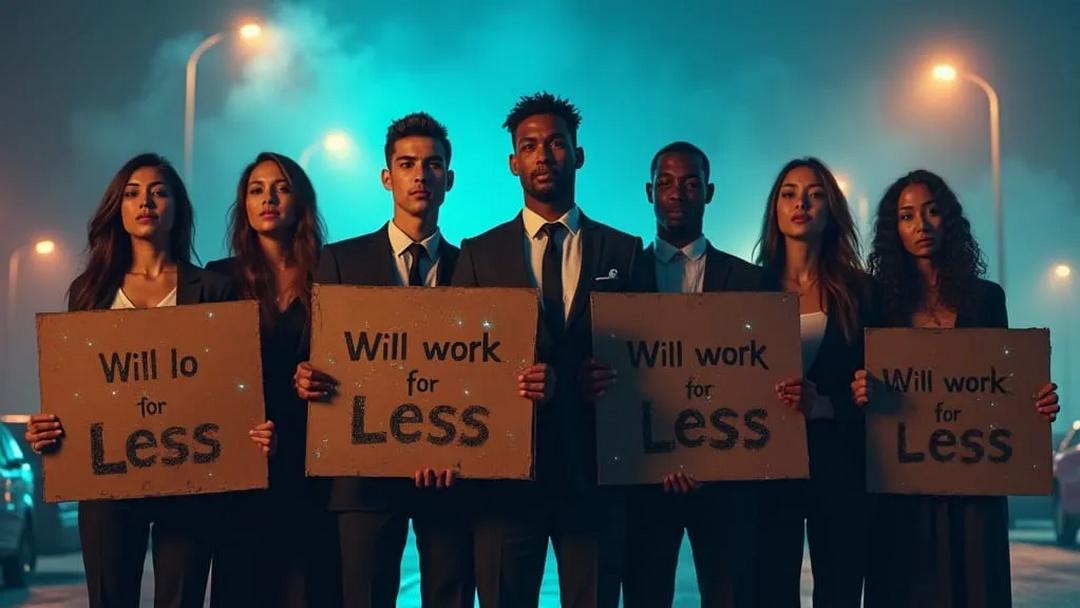No Results Found
The page you requested could not be found. Try refining your search, or use the navigation above to locate the post.

Compounding charges refer to the illegal act of accepting or agreeing to accept a benefit in exchange for not prosecuting a crime. In Michigan, this is considered a serious offense, and the law specifically prohibits it under Michigan Laws.
Compounding occurs when a person involved in or aware of a crime chooses not to report it or prosecute it in exchange for something valuable. Essentially, it’s a way of “settling” the matter privately instead of going through the legal system, often through money, services, or other forms of compensation.
According to MCL 750.122, it is illegal for someone to:
This law applies to both the person who might report the crime (such as the victim) and the person who offers the benefit (such as the offender). The law makes it clear that the proper way to handle any crime is through the court system, not private arrangements.
The penalties for compounding can vary based on the severity of the underlying crime. Under MCL 750.122(7), if the crime being “settled” is a felony, then compounding the charge is also treated as a felony. If the crime is a misdemeanor, compounding becomes a misdemeanor. This ensures that compounding is not an easy way out of legal consequences.
The reason compounding charges are treated so seriously is to ensure justice. When someone allows a crime to be hidden in exchange for personal gain, it undermines the justice system and can allow criminals to avoid punishment.
In Michigan, the law against compounding charges is clear and strict. It is never legal to accept or offer benefits in exchange for not prosecuting or reporting a crime. The courts are the proper avenue for handling all criminal matters.
For more details, you can view the specific law on the Michigan Legislature website (MCL) Section 750.122.
In Michigan, there are no exceptions that allow for compounding charges under MCL 750.122.
The law is strict in prohibiting any agreement to accept compensation in exchange for not reporting or prosecuting a crime.
This means that regardless of the circumstances, a person cannot legally accept money, services, or other benefits to refrain from involving the legal system in a crime.
Unless you are rich and famous or a politician.
However, while MCL 750.122 prohibits private settlements or agreements to avoid prosecution, there are legal alternatives within the justice system itself, such as plea bargains and restitution agreements.
These are formal processes, overseen by courts or prosecutors, where a defendant may agree to plead guilty to a lesser charge or make amends to the victim. Importantly, these arrangements are part of the legal system and are monitored to ensure fairness and justice.
“The best we can do is an educated guess.”
Note: This article provides a general overview and does not substitute for legal advice. Anyone charged with an offense should consult an attorney for specific legal guidance. Don’t forget the internet is full of “Misinformation”
The page you requested could not be found. Try refining your search, or use the navigation above to locate the post.

Amid the ongoing national issues, Vice President Kamala Harris introduced new initiatives on Monday aimed at addressing the needs of Black men as she works to bolster her coalition in anticipation of the upcoming Election Day.
The proposal aims to provide Black men “with the tools to achieve financial freedom, lower costs to better provide for themselves and their families, and protect their rights,” according to a release by the campaign.
Part of the proposal includes providing one million loans that are fully forgivable up to $20,000 to Black entrepreneurs and others to start a business. According to the campaign, the loans would be provided through a new partnership between the Small Business Administration and some lenders and banks.
Harris is also calling for creating and investing in programs that help expand pathways for job opportunities for Black men, including promoting apprenticeships, strengthening the Public Service Loan Forgiveness program and investing in more Black male teachers.
On the campaign trail, Harris has said she will cut college degree requirements for certain federal jobs if elected president.
Read the rest here at CNN
No soup for you says the Michigan Court of Appeals. Back to the public health code you go.
Because we conclude the MRTMA provides no such proscription,we affirm the trial court’s denial of the motion to dismiss, and the case is remanded to the circuit court for trial on felony charges.
If you want to know more read the opinion here, otherwise just call our office if you get in the same sticky situation.
STATE OF MICHIGAN v JULIA KATHLEEN SOTO – MRTMA – COA 20241007_c370138_23_370138.opn
“The best we can do is an educated guess.”
The report entitled Weighing the Impact of Simple Possession of Marijuana: Trends and Sentencing in the Federal System updates a 2016. ” As of January 2022, no offenders sentenced solely for simple possession of marijuana remained in the custody of the Federal Bureau of Prisons.”
(One might assume not many people get arrested for “Simple Posession” by the Feds).
Note: This article provides a general overview and does not substitute for legal advice. Anyone charged with an offense should consult an attorney for specific legal guidance. Don’t forget the internet is full of “Misinformation”
The DEA is investigating international criminal organizations that are operating illegal marijuana grows in about 20 states, including Maine.The significant electricity usage in a residence, its windows concealed with cardboard, and the scent of marijuana caught the...
POW - Right in the Kisser. Businesses watch out for the lawA Pennsylvania-based convenience store chain was hit with a lawsuit by the Biden administration at the same time the president stopped by one of their locations on the campaign trail. Sheetz is being accused...
Woman allowed airport police to check her luggage, had name tag on bags, according to reportsBefore a 21-year-old Memphis woman could board an United Airlines flight, Memphis International Airport Police found 56 pounds of marijuana in her luggage, according to...
Oregon governor signs a bill recriminalizing drug possession into lawOn April 1, 2024, Oregon Governor Tina Kotek signed House Bill 4002 into law, effectively recriminalizing the possession of small amounts of certain controlled substances. This legislation marks a...
John Sinclair, the poet whose imprisonment for marijuana inspired the start of Ann Arbor’s long-running annual Hash Bash in the 1970s, has died. He was 82.Sinclair's passing occurred on Tuesday, April 2, 2024, at a Detroit hospital, merely four days prior to his...
You go girl!!!A public high school was found to have violated the First Amendment when it suspended a student from her cheerleading team for using profane speech off campus. Mahanoy Area Sch Dist v BL, No 20-255, ___ US ___ (June 23, 2021). The U.S. Supreme Court has...
So SorryMarijuana reform advocates demand an apology from Kamala Harris for locking up pot smokers and slam her 'political hypocrisy' for now saying no one should 'go to jail for smoking weed!'Marijuana reform advocates are urging Vice President Kamala Harris to issue...
Apple to ApplesAn independent federal agency has recently cited a Michigan credit union for non-compliance with regulations regarding banking services for the marijuana industry. Consequently, the financial institution has been directed to halt the opening of new...
Following The MoneyLarge cash transactions by marijuana businesses should not be automatically flagged as suspicious, as per the latest IRS guidance. The tax agency's guidance aims to provide clarity on the federal Bank Secrecy Act, which mandates businesses,...
THE KIDS AREN’T ALRIGHT, THEY’RE DYING OF DRUG OVERDOSESFrom May 2022 to May 2023, the Centers for Disease Control and Prevention reported an alarming 37 percent increase in American lives lost due to overdoses, totaling over 112,000 fatalities. This staggering surge...

Oct 10, 2024 (Reuters)
Cleary Gottlieb Steen & Hamilton will create a new category of non-equity partners, becoming the latest major U.S. law firm to move away from the traditional single-tier structure in which all partners have an ownership stake in the firm.
Adopting a non-equity partnership tier is “an important step for Cleary as we continue to strategically grow,” a firm spokesperson said in a Thursday statement. “Innovating in this way underscores our dedication to developing and retaining talent,” the spokesperson said.
New York-founded Cleary had 180 partners in 2023, according to figures published by the American Lawyer.
The firm generated more than $1.4 billion in total revenue, and profit per equity partner averaged $4.5 million, according to the American Lawyer data. Cleary has about 1,100 lawyers globally.
Read the full article here at Reuters

Some laws in effect in 2025 "Enacted by the People of Michigan" Here we go...Minimum wage Improved Workforce Opportunity Wage Act - Michigan's minimum wage will increase twice during 2025, per a 2018 Supreme Court ruling. Starting Jan. 1, 2025, the standard minimum...

In Michigan, individuals charged with a crime have the constitutional right to legal representation.In Michigan, individuals charged with a crime have the constitutional right to legal representation. For those unable to afford a private attorney, the state provides...
Other Articles
Can the police sieze your belongings and hold it without charging you with a crime?Civil asset forfeiture is a legal process that allows law enforcement agencies in Michigan to seize property they suspect is connected to criminal activity, even if the owner hasn't...
Can the police sieze your belongings and hold it without charging you with a crime?Forfeiture laws in Michigan allow the government to seize property – like cash, cars, or even houses – if they believe it was involved in a crime. This can happen even if the owner...
Defense against false accusations of Criminal Sexual Conduct (CSC) in MichiganDefending against a false accusation of Criminal Sexual Conduct (CSC) in Michigan is a serious matter and requires a well-prepared legal strategy. Here are several steps you should take to...
Can the police seize your belongings and hold it without charging you with a crime?Read the summary below and watch Attorney Michael Komorn in the Court of Appeals.Summary of "Ruben Delgado v. Michigan State Police": This case was filed in the Jackson County Circuit...

In Loper Bright Enterprises v. Raimondo, the Supreme Court addressed the enduring precedent set by Chevron U.S.A., Inc. v. Natural Resources Defense Council, Inc., which has shaped administrative law for four decades.
The Court’s decision in this case reaffirms and refines the principles of judicial deference to administrative agency interpretations of statutory mandates. The ruling has significant implications for regulatory authority and the balance of power between agencies and the judiciary.
The Supreme Court decision on Friday, June 28, 2024 significantly limits federal agencies’ authority to interpret laws, requiring courts to rely on their own interpretations of ambiguous laws. This ruling is expected to have widespread impacts, affecting everything from environmental regulations to healthcare costs nationwide.
Background and Lead Opinion
In Chevron, the Court established a two-step framework for courts to evaluate whether to defer to a federal agency’s interpretation of a statute it administers. The Chevron doctrine stipulates that if a statute is ambiguous, courts should defer to the agency’s interpretation as long as it is reasonable.
This doctrine has allowed agencies considerable latitude in shaping policy and implementing regulations.
Chevron Deference Revisited:
The Court in Loper Bright Enterprises took the opportunity to revisit the Chevron doctrine. The majority opinion reaffirmed the necessity of judicial deference to agency expertise but emphasized the importance of clear legislative mandates. The Court highlighted that deference is appropriate only when Congress has explicitly or implicitly delegated authority to the agency to make such interpretations.
Limits of Agency Authority: The opinion underscored the limits of agency power, cautioning against overreach. The Court stated that while agencies possess expertise, they should not extend their interpretations beyond the scope of their delegated authority. This aspect of the ruling seeks to prevent agencies from assuming legislative roles under the guise of interpreting ambiguous statutes.
Judicial Oversight: The ruling reinforces the judiciary’s role in ensuring that agencies operate within their statutory bounds. The Court stressed that ambiguous statutes do not automatically grant agencies the power to regulate as they see fit. Instead, courts must scrutinize whether the agency’s interpretation aligns with the statutory framework and Congressional intent.
Implications for Regulatory Agencies
Cannabis Regulatory Agencies in Michigan: For state agencies like those regulating cannabis in Michigan, this ruling emphasizes the need for clear statutory guidance. The agencies must ensure that their regulations and enforcement actions are firmly grounded in legislative mandates. This may require more detailed legislation from state lawmakers to provide a clear framework for agency actions.
Historical Context and Agency Overreach: Over the past 40 years, the Chevron doctrine has enabled various federal agencies to expand their regulatory reach.
However, there have been instances where courts have pushed back against perceived overreach. The Environmental Protection Agency (EPA) and the Federal Communications Commission (FCC) are notable examples where judicial scrutiny has curtailed expansive interpretations of statutory authority.
Future Regulatory Landscape: Moving forward, regulatory agencies must navigate a more constrained environment where judicial deference is not guaranteed. Agencies must build robust records demonstrating that their interpretations are within the scope of their delegated authority and consistent with legislative intent. This may result in more conservative and narrowly tailored regulations.
What all that means in one long sentence: Loper Bright Enterprises v. Raimondo has reinforced judicial oversight over federal and state regulatory agencies and delineates the limits of agency authority for businesses and individuals, especially those involved in highly regulated industries such as cannabis meaning regulations made up by agencies need legislative OK.
At Komorn Law, we specialize in navigating the complex landscape of constitutional law. This recent Supreme Court decision illustrates the nuanced legal analyses and strategic thinking that we bring to our practice, ensuring that our clients receive informed and effective representation.
Our commitment to understanding and influencing the trajectory of legal standards helps us advocate for a balanced approach to individual rights and public safety.

Michigan Criminal Laws FAQs Theft CrimesAccording to Michigan State Law (Michigan Compiled Laws - MCL), Theft Crimes generally involve the unlawful taking of someone else's property with the intent to deprive them of it, either permanently or for a significant period....

Michigan Criminal Laws FAQs Domestic ViolenceAccording to Michigan State Law, Domestic Violence is not a standalone criminal offense but rather a designation applied to certain crimes when the victim is a "spouse or former spouse, an individual with whom the person...
Other Articles
The Constitution provides “no textual justification for saying that the existence or the scope of a State’s power to expropriate private property without just compensation varies according to the branch of government effecting the expropriation.”The case in question...
The Petitions of the Week column highlights a selection of cert petitions recently filed in the Supreme Court. A list of all petitions we’re watching is available here. Organized crime, from the mafia to small-time money laundering schemes, often evades criminal...
In a significant legal development, the United States Supreme Court has recently issued a ruling that has far-reaching implications for individuals facing charges related to "threat speech" in Michigan. The case of Counterman v. Colorado, decided on June 27, 2023,...
Listen live to arguments in the Supreme Court. On Monday, the Supreme Court is set to hear arguments over the phone for the first time ever due to the coronavirus pandemic; they'll hear 10 cases remotely from now until May 13. But that's not the only history being...

During a farm inspection, New Mexico state special agents discovered an excessive number of cannabis plants in violation of state laws. Subsequent visits revealed dozens of underfed and shell-shocked Chinese workers on the premises, raising concerns about their wellbeing.
The workers said they had been trafficked to the farm in Torrance County, N.M., were prevented from leaving and never got paid.
They are part of a new pipeline of migrants “leaving” China and making illegal border crossings into the United States via Mexico, and many are taking jobs at hundreds of cannabis farms springing up across the U.S.
Read the rest from a once great and still public funded NPR

Michigan Criminal Laws FAQs Theft CrimesAccording to Michigan State Law (Michigan Compiled Laws - MCL), Theft Crimes generally involve the unlawful taking of someone else's property with the intent to deprive them of it, either permanently or for a significant period....

Michigan Criminal Laws FAQs Domestic ViolenceAccording to Michigan State Law, Domestic Violence is not a standalone criminal offense but rather a designation applied to certain crimes when the victim is a "spouse or former spouse, an individual with whom the person...
Other Articles
Michigan has a crime victim compensation fund. You can contact them using the various links on this page. This post is just to provide you with information. We do not provide any services for this topic.Crime Victims Victims of crime often face lasting repercussions...
Is the Michigan State Police really concerned about your Driver License and Motor Vehicle Information privacy?Here's what they say on their websiteThe Michigan State Police (MSP) is committed to protecting the privacy of your potentially personally identifiable data...
Is the Michigan State Police really concerned about your DNA / biometric privacy?Here's what they say on their websiteThe Michigan State Police (MSP) is committed to protecting the privacy of your potentially personally identifiable data (PPID) in a strong and...
Is the Michigan State Police really concerned about your criminal history privacy?Here's what they say on their websiteThe Michigan State Police (MSP) is committed to protecting the privacy of your potentially personally identifiable data (PPID) in a strong and...